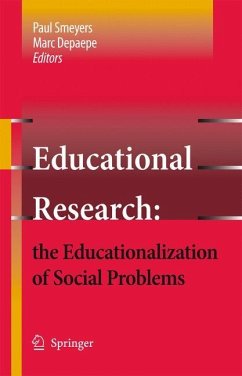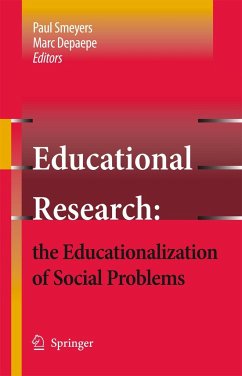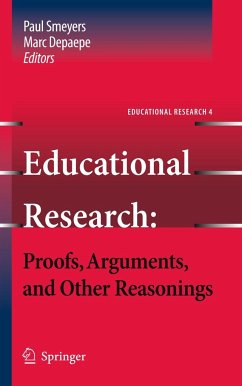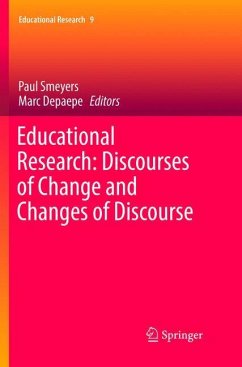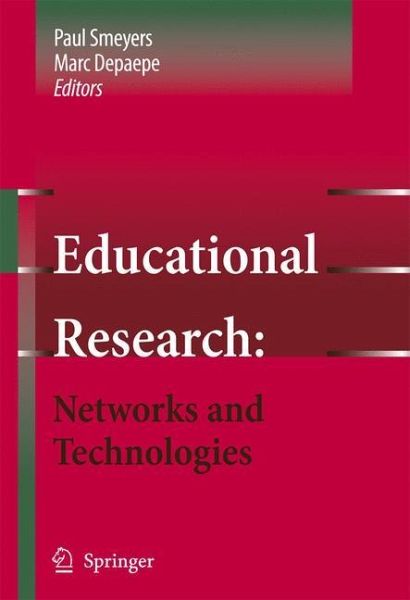
Educational Research: Networks and Technologies
Versandkostenfrei!
Versandfertig in 6-10 Tagen
76,99 €
inkl. MwSt.

PAYBACK Punkte
38 °P sammeln!
PAUL SMEYERS AND MARC DEPAEPE THE FRAMEWORK OF THE COLLABORATIVE PROJECT This is the third book that resulted from the close collaboration within the Research Community 'Philosophy and History of the Discipline of Education: Evaluation and Evolution of the Criteria for Educational Research', established by the Research Foun- 1 dation Flanders, Belgium (Fonds voor Wetenschappelijk Onderzoek - Vlaanderen). From the beginning, the aim of the network has been to combine research c- cerning the history and nature of the discipline with the science of education. Clarification, evaluation and justifi...
PAUL SMEYERS AND MARC DEPAEPE THE FRAMEWORK OF THE COLLABORATIVE PROJECT This is the third book that resulted from the close collaboration within the Research Community 'Philosophy and History of the Discipline of Education: Evaluation and Evolution of the Criteria for Educational Research', established by the Research Foun- 1 dation Flanders, Belgium (Fonds voor Wetenschappelijk Onderzoek - Vlaanderen). From the beginning, the aim of the network has been to combine research c- cerning the history and nature of the discipline with the science of education. Clarification, evaluation and justification of the different modes and paradigms of educational research are thus taken into account. The academics involved in this network share the belief that there is a place within the discipline of education for so-called foundationalist approaches. This is not, however, to answer a need for a (new) foundation, but to systematically study a particular area from a discipli- oriented stance. The essays, published in 2003 under the title Beyond Empiricism: On Criteria for Educational Research (Smeyers and Depaepe, 2003), bear witness to the belief that educational theory cannot help but go beyond empirical educational research to provide a real understanding of education as a human practice. Edu- tional research is discussed respectively as a social discourse, as a discursive practice, in relation to epistemological issues and in the light of questions of ethics.





